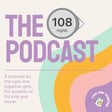
Episode 60- SCREEN FOR T1D. And a new drug that can delay symptoms for 3 years!?
We chat with Dana! She is a Research Nurse Practitioner (ARNP). Dana has provided care for many children and adults participating in type 1 diabetes research in Seattle (at the Benaroya Research Institute, which does TrialNet screening and studies). We chat all things screening, why its important, how to do it, and what can be done if you or a loved one have antibodies!
TrialNet has a fun detective-themed activity for families interested in learning more about T1D and risk screening. It has a detective theme with puzzles revealing the five autoantibodies associated with T1D. Follow their Instagram @trialnet to learn more!
TrialNet: https://www.trialnet.org/
Instagram: https://www.instagram.com/typeonetogether/
Tiktok: https://www.tiktok.com/@typeonetogether
Website: www.typeonetogether.com
Team Together: https://www.typeonetogether.com/teamtogether
T1D Diagnosis: Made Simple (The Course): https://typeonetogether.thinkific.com/courses/t1ddiagnosismadesimple
T1D Babysitter List: https://stan.store/typeonetogether/p/t1d-babysitter-resource
Amazon Storefront: https://amzn.to/3VaKSD0
Super Parents Community: https://honeyhealth.app.link/28gQmJjyDsG
Facebook Group: https://www.facebook.com/groups/typeonetog




